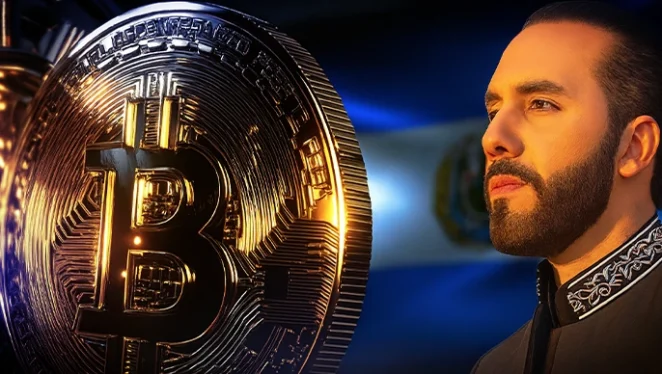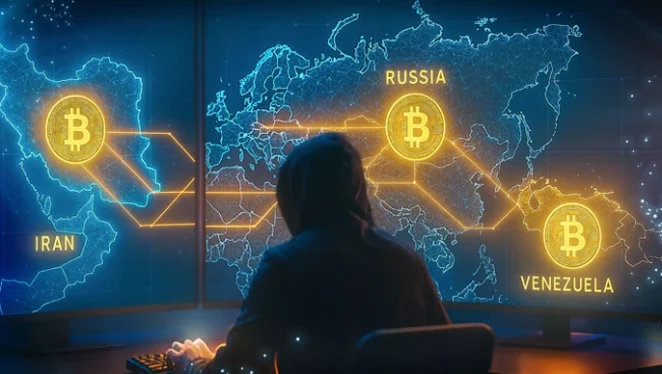The World’s Chaos Is Only Making Bitcoin Stronger

From the ongoing war in Ukraine to the escalating tensions between Iran and Israel, global instability is the backdrop of daily headlines. And traditionally, these conflicts have massively crippled Bitcoin's growth.
That's because global chaos means a rush to so-called safe assets like gold, silver, and oil — an exclusive club of "predictable" assets. But now, Bitcoin is joining that same conversation.
Amid rising inflation, supply shocks, and deepening distrust in fiat regimes, Bitcoin is quietly asserting itself as a non-sovereign, permissionless store of value — not just for individuals, but for nations.
What was once dismissed as speculative is now becoming strategic, and Bitcoin is proving that it is an asset capable of withstanding global uncertainty.
This article is part of Chain Reactions: expert opinions on everything blockchain and crypto.
What Wars Mean For Markets

I closely follow geopolitical developments through a range of sources, and it’s clear that the world is currently in a state of heightened instability. Recent tensions between Iran and Israel have escalated, alongside the ongoing war between Ukraine and Russia. Meanwhile, other regional flashpoints continue to simmer — including recent border clashes between Thailand and Cambodia and, until recently, fragile ceasefire conditions between Rwanda and the Democratic Republic of Congo.
These conflicts fuel what many refer to as the “forever wars” — sustained military engagements that serve to perpetuate the military-industrial complex. There is increasing speculation that some of this unrest may be orchestrated or at least exacerbated by transnational interests that benefit from division and instability. The objective appears to be twofold: to opportunistically acquire strategic assets during periods of chaos and to ensure sovereign nations remain distracted and financially strained, enriching those who operate behind the scenes.
In such periods of instability, capital traditionally seeks safe havens. This “flight to safety” has historically driven up the prices of gold and silver. Oil prices tend to spike as well, particularly when energy infrastructure or global shipping routes are threatened — adding inflationary pressure to already strained economies. This pattern is well established and has repeated across decades of global crises.
What’s often missing from mainstream geopolitical analysis, however, is a more nuanced understanding of capital markets — particularly the emerging role of crypto assets like Bitcoin. In a world where inflation risk is increasingly driven by supply shocks and energy price volatility, Bitcoin offers a permissionless, non-sovereign alternative store of value.
Countries Are Already Banking On Bitcoin

This isn’t just theoretical. Some sovereign nations are already experimenting with Bitcoin as a strategic asset. El Salvador is the most well-known example. The country adopted Bitcoin as legal tender from 2021 to 2024 and accumulated over 5,700 BTC (as of mid-2025) at an average price significantly below current market value.
With Bitcoin trading well above $60,000, the nation’s holdings are now worth over $350 million, delivering El Salvador a substantial unrealized gain — possibly exceeding $150 million USD depending on its acquisition cost.
President Nayib Bukele has argued that this strategy is not just about financial returns. Rather, it's about sovereignty: reducing dependence on the IMF, detaching from USD volatility, and attracting crypto investment and tourism.
Moreover, the government’s Bitcoin portfolio has been partly funded by tourism revenues, increased remittances via BTC rails (avoiding legacy fees), and strategic issuance of Bitcoin-backed bonds.
Bitcoin: The New Safe Haven

This approach is not without risk, and critics rightly point out Bitcoin’s volatility. But what’s becoming harder to ignore is that Bitcoin gives countries an asymmetric hedge — particularly for those under sanctions or struggling with dollar dependency. There are also signs that countries like Iran, Russia, and Venezuela may be accumulating BTC indirectly, either through mining or via proxy accounts, in an effort to bypass traditional financial chokepoints.
Despite recent global turbulence, Bitcoin has remained relatively resilient. Interestingly, reduced BTC mining activity following the bombing in Iran has led to speculation that the country had been mining and accumulating Bitcoin quietly — reinforcing the idea that BTC can serve as a strategic, censorship-resistant asset even during wartime.
As geopolitical uncertainty deepens, we may see a broader shift in safe haven behavior — with Bitcoin and possibly other decentralized assets complementing gold and silver as hedges against systemic risk.
The question we need to ask isn’t what may happen tomorrow, but where we could be six months from now. That longer-term perspective is essential — because the fault lines of traditional finance are starting to shift, and sovereign strategies may evolve far more rapidly than most analysts expect.
Join The Leading Crypto Channel
JOINDisclaimer:Please note that nothing on this website constitutes financial advice. Whilst every effort has been made to ensure that the information provided on this website is accurate, individuals must not rely on this information to make a financial or investment decision. Before making any decision, we strongly recommend you consult a qualified professional who should take into account your specific investment objectives, financial situation and individual needs.

cristian
Cristian is the CEO and Co-Founder of Liquid Loans. A former partner in an international accounting firm, Cristian brings this wealth of experience to build and provide thought leadership in the blockchain and DeFi space.

Development
Knowledge
Subscribe To Newsletter
Stay up-to-date with all the latest news about
Liquid Loans, Fetch Oracle and more.
Copyright © 2024 Crave Management.
All Rights Reserved.

The LL Librarian
Your Genius Liquid Loans Knowledge Assistant




